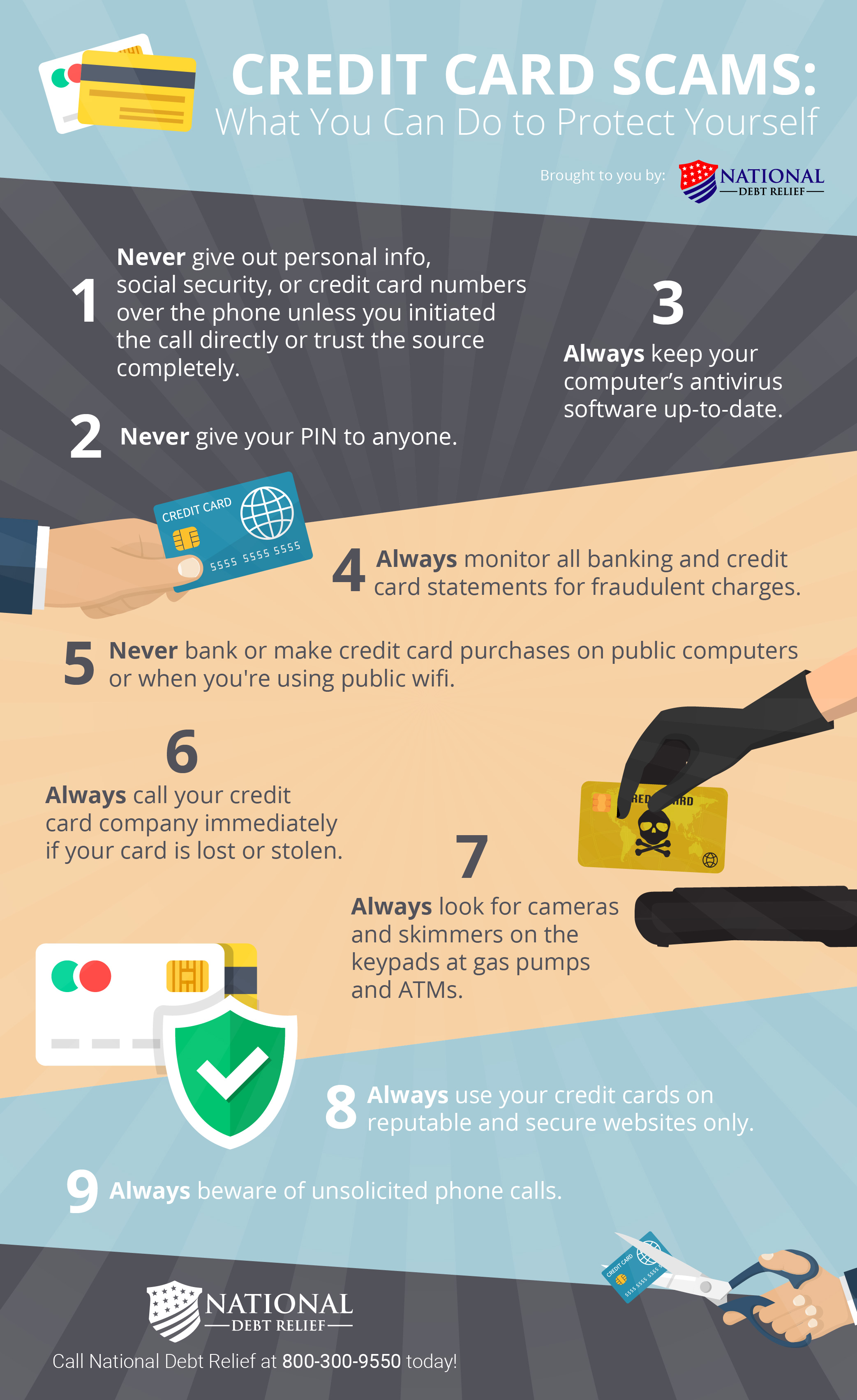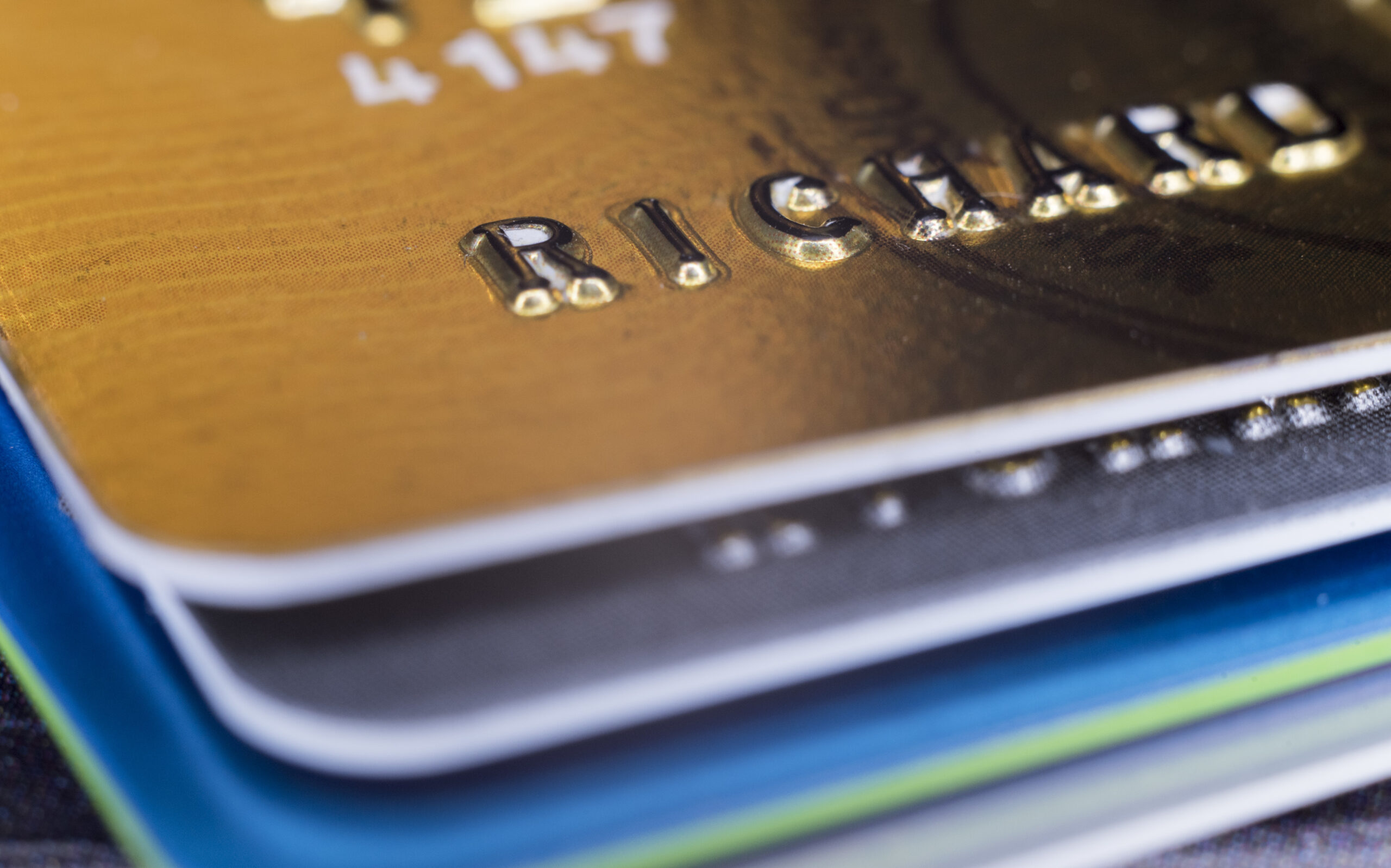In today’s digital world, it’s more important than ever to be vigilant and protect yourself from credit card scams.
Scammers are always coming up with new ways to trick people, but the most common tactics involve unsolicited calls, emails and text messages.
Scammers may pose as representatives from your bank or credit card company. Or, they may try to scare you into giving them your personal information by claiming that your account has been compromised.
No matter what tactic scammers use, the goal is always the same: to get your credit card information. Once they have your information, they can use it to make unauthorized charges or even steal your identity.
Let’s go over some of the most common credit card scams, and suggest tips for how to avoid them.
Jury Duty and Police Scams
Scammers may call, email or text you claiming to be from a local court or police department. They may say that you missed jury duty or have unpaid fines and that a warrant has been issued for your arrest. Then, they tell you that the only way to clear up the issue or pay your fines is by giving them your credit card information.
This is almost certainly a scam. Courts and police departments will never contact you to demand payment over the phone, email or text.
If you receive a communication like this, do not provide any personal information or make any payments. Instead, immediately notify your local clerk of court office.
Debt Reduction Program Scams
In this scam, people are promised immediate credit card debt relief or lower interest rates from the scammer in exchange for an upfront fee.
The Federal Trade Commission (FTC) has highlighted cases of debt relief service scams that target consumers with high credit card debt. Scammers may claim to negotiate with creditors to settle or reduce your debt on your behalf.
In truth, they have no intention of ever doing so. These operations often charge cash-strapped consumers a large upfront fee, but provide little to no service at all. The FTC has brought dozens of law enforcement actions against these phony credit-related services.
Skimming Scams
Skimming scams involve thieves attaching devices to gas pumps and ATMs that steal credit card numbers.
The scammers then use the stolen data for nefarious purposes. For instance, they might create fake debit and credit cards that allow them to withdraw money from their victims’ accounts, or to purchase money orders from the post office.
Fraud Department Scams
Fraud department scams involve scammers contacting you and claiming that your card has been compromised. They then steal your information when you verify the numbers and personal details.
For example, unsuspecting people have received calls from scammers posing as representatives from a bank asking for verification, which has led to unauthorized transactions.
Another example of this scam involves scammers pretending to be from the IRS and sending phishing emails designed to trick taxpayers into revealing personal and financial information. These emails appear to be official communications from the IRS or related entities, but they contain links to a fake website that looks like the official IRS website.
Be wary of any unsolicited calls or emails asking for your financial information, and never click on links in suspicious emails. If you believe you may have been scammed, update your IRS e-file credentials immediately.
Credit Card ‘Cleaning’ Scams
In a credit card cleaning scam, fraudsters offer to clean the magnetic strip on your card to make it easier to read. In reality, they skim the strip to steal your account information.
Victims are led to believe their card is secure, only to discover unauthorized transactions later.
Lottery and Prize Scams
Lottery and prize scams involve scammers informing people that they have won a lottery, sweepstakes or prize. The scammers then ask for payment or personal information to claim the winnings.
Late Utility Bill Scams
Late utility bill scams can be incredibly convincing. Scammers pose as your utility company and threaten to shut off your services unless you make an immediate payment.
The scammers often ask for payment through methods — such as wire transfer, reloadable debit cards, gift cards or cryptocurrencies — that are difficult to trace and almost impossible to recover.
Computer Technical Support Scams
Tech-support scammers typically claim to be representatives from a tech company such as Microsoft. They then state that they have detected a virus on your computer and offer to remove it for an upfront credit card payment.
Scammers may call you directly and may even change the caller ID to display what appears to be a legitimate tech-support phone number.
The FTC offers detailed information on how to spot, avoid, and report tech-support scams. For more information, visit the FTC’s official page on tech-support scams.
IRS Scams
In this type of scam, fraudsters pose as IRS agents and claim that you owe back taxes that are payable by credit card. Or, they may suggest that you can receive your tax refund by having it loaded onto your debit card.
This scam tends to surge during tax season, with many people reporting calls from “IRS agents” demanding immediate payment. Remember, the IRS will not ask for your credit or debit card information over the phone.
Charity Scams
Charity scammers pose as worthy causes and solicit donations. These scams often increase after natural disasters, when it’s easiest to exploit people’s generosity.
What You Can Do to Avoid Scams
Credit card scams can be devastating, but there are steps you can take to protect yourself. By staying informed about the latest scams and knowing how to respond, you can reduce your risk of becoming a victim.
Here are a few key things to remember:
- Be wary of unsolicited calls, emails and texts. If something seems suspicious, ignore it.
- Never give out your credit card information over the phone or email. If you are unsure whether a call or email is legitimate, contact the company directly using their phone number or email address that you have obtained from an official source.
- Make sure websites are reputable before you enter credit card information.
- Monitor your credit card statements regularly. This will help you to quickly identify any unauthorized transactions.
If you think you may be a victim of a credit card scam, contact your credit card company immediately. It can help you cancel your card and dispute any unauthorized charges.










